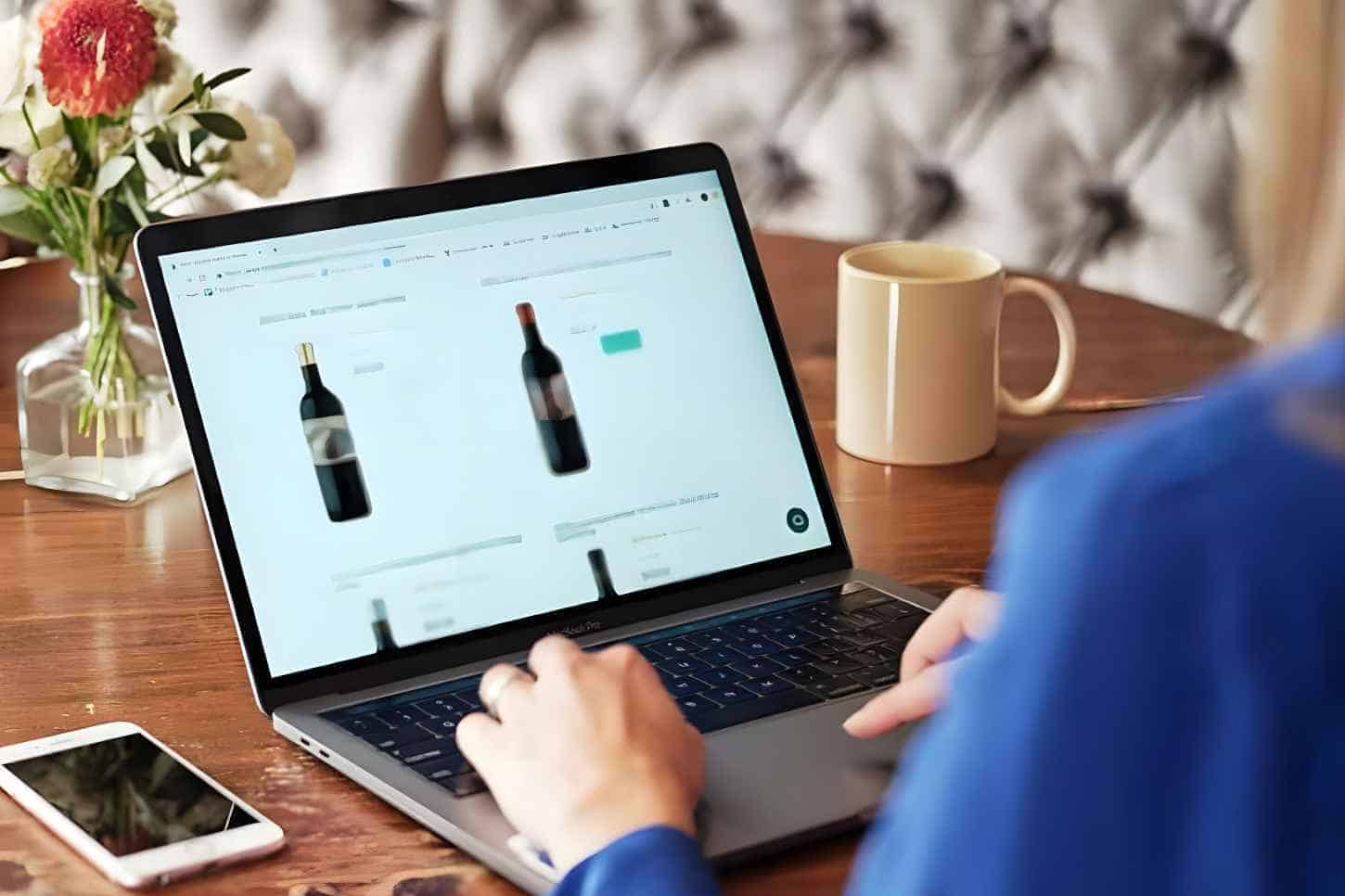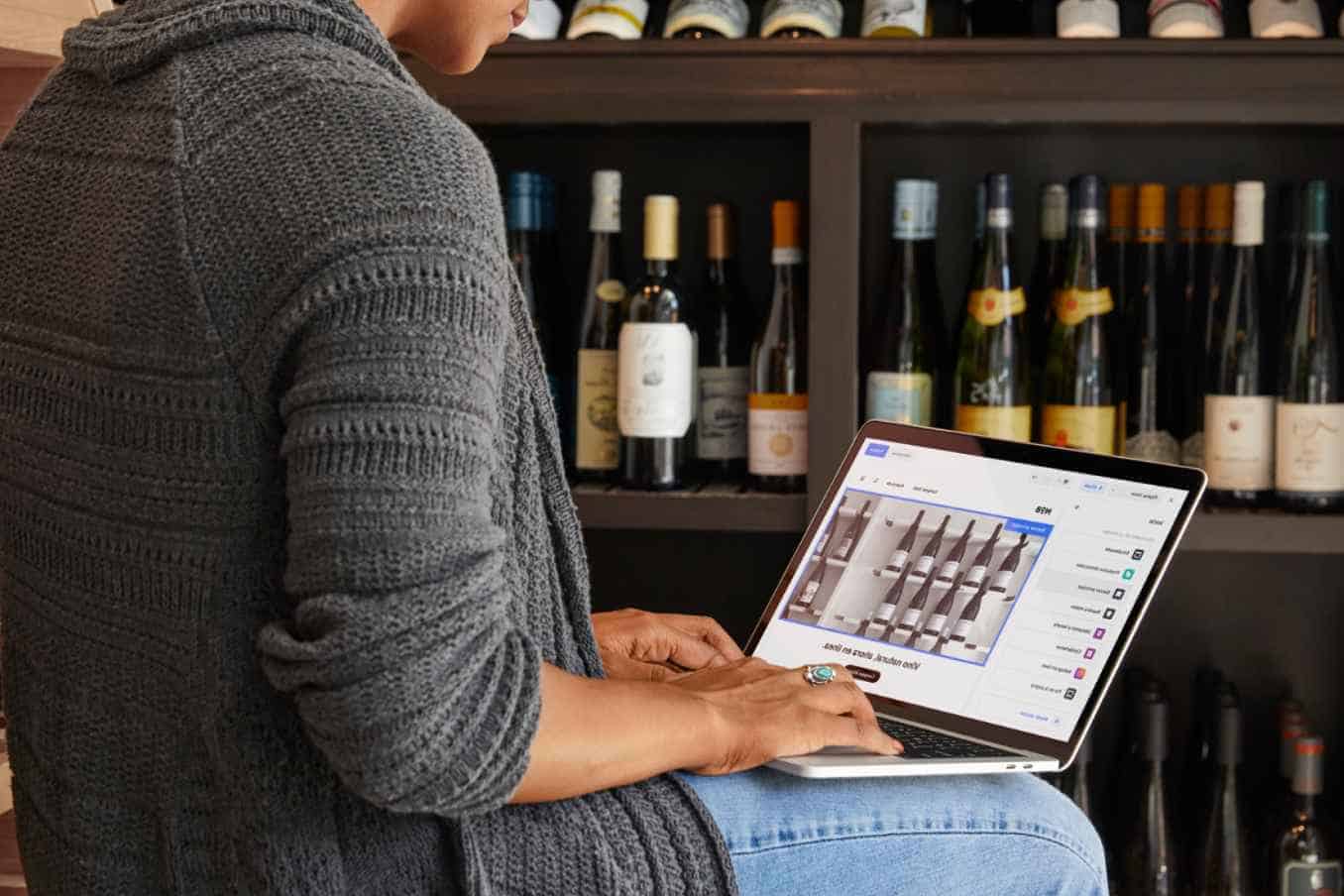Since the advent of technology, selling online has become incredibly lucrative. If you want to profit by selling wine, here are some steps you can take!
1. Plan Your Wine Business
How to do Market Research?
When traversing the online wine market, thorough research is vital. You must know your buyers and their desires to remain competitive. Investing time in studying the industry will also provide insight into upcoming trends.
Set Your Goals and Objectives
A thriving online wine store begins with creating specific, measurable, attainable, relevant, and time-bound (SMART) goals and objectives. Define your long-term vision for the enterprise. Here are some things you should ask yourself:
- What do you want to achieve?
- What is your ultimate goal?
- What are my current objectives? How do I get there?
With that answered, you must also make a step-by-step action plan to achieve your aims. Achieve success by creating an action plan with clear goals!
Develop a Unique Selling Proposition (USP)
A Unique Selling Proposition shows the benefits your wine provides to its target audience. This way, you can easily stand apart from other wine merchants. A powerful USP is an effective way for online wine store owners to impact customers into picking yours.
2. Obtain the Right Licenses
Securing the proper permits and regulatory conditions is critical for anyone that deals in alcohol. Be it a winery, distillery, or retailer; you will need these permits. Getting the proper licenses is required to avoid severe penalties and long-term legal repercussions.
You must obtain different licenses and permits to sell wine online in the US. Most of these depend on your business area and scope. Here are some of these permits that could come into play:
- Federal Basic Permit: If you intend on producing, bringing in, wholesaling, or even marketing wine, this permit is essential. It’s vital to secure a Basic Permit through the Alcohol and Tobacco Tax and Trade Bureau or TTB, as federal law mandates.
- State Winery License: If you intend to craft wine, you must receive a winery license from your state. This license enables the local production and sale of wine within the borders of your home state. This permit is not needed if you are solely selling.
- Retailer’s License: To sell wine directly to buyers, you must obtain a retailer’s license from your state’s alcohol regulatory agency.
- Direct-to-Consumer (DTC) License: A DTC license from any state your store intends to work in is essential. Sadly, some states outlaw such transactions. However, other states permit the direct selling of wines as long as the statutes are satisfied.
- Shipper’s License: If you desire to provide your buyers in other states, you must acquire a shipper’s license. You must get one from each state where you want to sell. This specific permit allows for the direct delivery of wines within the set area.
You can read more about wine distribution laws per US State here.
3. Find Your Niche Audience
Finding the niche audience for your online wine store will help you succeed. You can specify potential buyers by assessing their demographics, interests, and tastes.
Focus on your desired customer’s tastes, so you can provide them with a tailored selection that will set you apart. An in-depth analysis of the competition allows for a unique spot to fill the market.
Once your niche patrons are defined, devise a tailored marketing effort. It’s beneficial in getting your store out there to the market.
4. Establish a Store
Are you undecided between making your online wine store from the ground up or an existing platform?
Creating one yourself grants you greater control over its features. However, it can be costly and take much longer to launch.
Meanwhile, choosing an existing site could save time and money while being easier to manage. However, this limits the scope of customizing your selling page. It’s integral to assess both paths before making a decision. That said, here are some online platforms where you can sell your wine:
| Site | Features |
| Total Wine | Highest wine net sales across the US |
| Wine Direct | Offers DTC from buyers to sellers
Excellent for distributors |
| VineSpring | Perfect platform for wineries |
| Naked Wines | Perfect for independent sellers and wineries |
| Vivino | One of the biggest communities of wine buffs |
| Shopify | Flexible e-commerce website with millions of customers |
5. Showcase Your Wine
You’ve taken the first step in building your online wine store—choosing an outlet. Now it’s time to ensure you create a superior buyer experience. Stunningly presenting your products is vital to the triumph of any e-commerce wine store. Here are a few reasons why:
Captures Customer Attention
The internet offers endless options, so capturing buyers’ attention is vital. An attractive wine photo can make yours stand out and gain the attention of possible buyers.
Builds Trust
Investing in a professional product photo will go far in garnering the trust of your buyers. When they see that you have taken the time to curate the product, it instills an idea that you’re offering top-notch quality wines.
Helps Customers Make Informed Decisions
Stunning visuals, packaging, and great descriptions work together to give folks an accurate insight into what they’re buying. You can give potential buyers all the details required to make a smart purchase.
To create an appealing product visually, consider the following tips:
- Use high-quality images
- Invest in packaging
- Write descriptive and engaging product descriptions
With this, they are more likely to try out your wines!
6. Know the Optimal Ways for Payment and Shipping
Ensuring secure commerce for selling wine online demands attention to payment and shipping methods. Here are a few elements you should keep in mind:
- Choosing Secure Payment Gateways: To ensure the security of payments, make sure you go for PCI-compliant gateways. Encrypt sensitive data during storage, and provide fraud prevention methods. By doing so, you can ward off any potential malicious activities or unauthorized dealings.
- Understanding Shipping Regulations and Limitations: Navigating shipping rules for alcohol can be tricky. While some states ban direct-to-consumer shipments entirely, others have precise labeling and packaging constraints. However, with the help of an adept transporter, you can have an easier time sending your wines!
- Partnering with Reliable Shipping Providers: When selecting a shipping provider, find one with a history of reliability and adherence. Look for providers specializing in wine and alcohol shipments that feature temperature-controlled delivery options and real-time tracking.
7. Start Marketing
Effective marketing methods are a must to ensure your online wine store’s success. Here are some ideas to help you boost visibility and sales:
- Social media marketing: Leverage social media channels to promote your online wine store. Post high-resolution photos with persuasive wine content, like tasting notes or food pairing ideas.
- Content marketing and blogging: Use content creation to make useful content for your buyers. It can include blog posts or guides that educate and entertain your audience about wine.
- Email Marketing: Ensure your buyers stay engaged with you and in the know through email. Use this venue to share product insights, boost offers, or deliver extra value. You can offer bargains and deals solely for subscribers!
- Influencer Partnerships: Tap into the power of influencers and wine bloggers to expand your reach. With this, you can bolster credibility with likely patrons.
- Paid Ads and Search Engine Optimization (SEO): Harness the power of paid ads and SEO to maximize your online wine store’s visibility. Use Google AdWords, Facebook Ads, or other outlets to target potential buyers more precisely.
8. Provide Great Customer Service
A top-notch customer service is critical for the longevity of any store. Here are a few tips to ensure your patrons have an excellent experience:
Prompt and Efficient Customer Support
Offer fast and reliable customer support to address shoppers’ concerns or issues. It can include providing a phone number, email, or live chat support to ensure timely and helpful responses.
Offer Personalized Wine Suggestions
Enhance your shop by tailoring wines to the patron’s palettes and past orders. Utilize data analytics to learn your patrons’ inclinations. This way, you can curate wine offers that will tantalize their taste buds!
Seamless Returns and Refunds Process
Ensure your patrons are satisfied with their buys by making returns and exchanges effortless. Provide clear and simple refund policies and a convenient system for the process to ensure it is hassle-free.
Encourage Feedback and Reviews
Asking buyers to review your products and services is a great way to learn and improve your services. Also, high ratings can help acquire trust with other potential buyers.
9. Monitor Sales
Keeping track of your online wine store’s sales is critical to ensure its success. Here are a few tips on how to monitor and analyze your business’ sales:
- Regularly analyzing sales data and trends: Find trends and patterns by exploring your sales data. Doing so will reveal which items perform well and the best times to market specific wines.
- Identifying areas for progress and growth: Analyzing your sales figures can help you identify prospects for progress. It can include widening your product range, targeting new buyers, and optimizing marketing tactics.
- Adapting to market and industry changes: Keep up with recent trends, like changing buyer interests and the market. Update your wine offerings and methods to maintain an edge.
- Scaling your business for long-term success: Harness the power of sales data to create a thorough, long-term plan for business growth. Consider growing your online presence and boosting marketing efforts.
Keeping an eye on your sales figures is vital for making wise business decisions. It can maintain and ensure the success of your wine store in the years to come.
Common FAQs
Is it legal to ship wine directly to buyers?
Some states forbid or restrict direct shipping, while others demand a permit or license. You must read and adhere to all laws before selling any wines!
How do I handle returns and refunds?
Ensure your clients have a smooth and simple return and refund process when shopping at your online store. To ensure the best possible experience, share these policies clearly to ensure there won’t be any problems during their purchase! You can also provide a return shipping address if any problem occurs.
How do I price my wine products?
Crafting your wine pricing should be strategic and planned. You should account for all costs of goods and overhead costs. Ensure you research existing prices from competing stores—this will guarantee that you offer greater rates without sacrificing quality or profits.
How do I handle age verification for wine sales?
Ensure that only buyers of legal age can purchase wine by setting a process verifying their birth year. Be familiar with your local laws, as age limits can differ across regions and countries.
Can I sell wine internationally?
Yes, you can sell wine globally. However, dealing abroad can be daunting. It’s vital to remain informed about all customs and import/export laws.
Summary
Ready to start profiting from wine? Follow these nine simple steps, and you’ll have an online business in no time! Don’t delay—grab some wine bottles, get started, and start this new venture.









